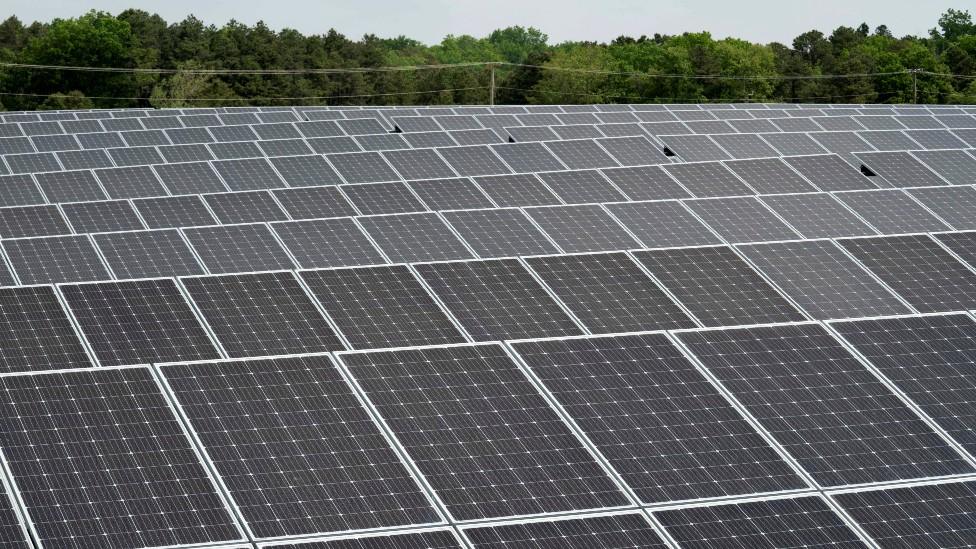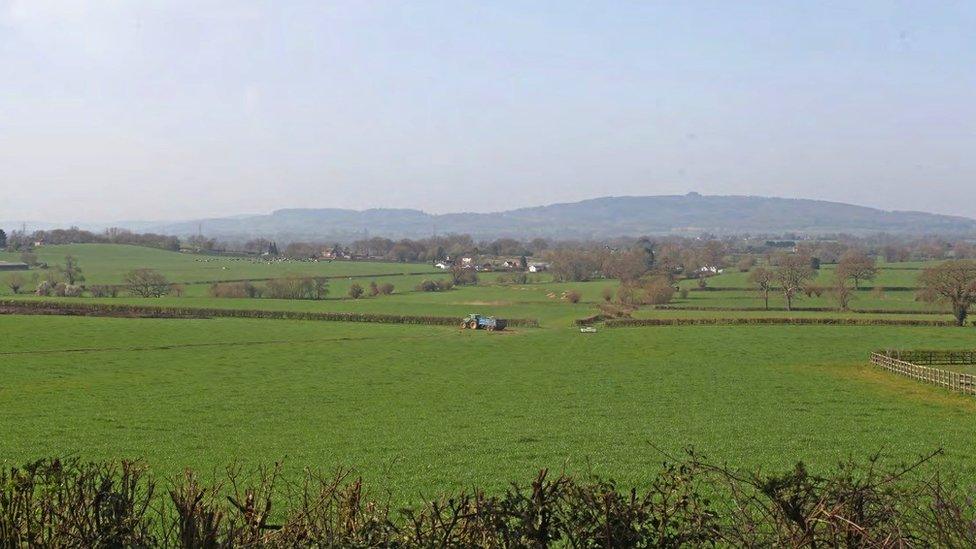Wiltshire heritage group raises concern over solar farms
- Published

There are currently 42 operational solar farms in Wiltshire
A heritage group has raised concerns over the number of solar farms in a county.
There are so many, according to North Wiltshire Heritage Group, the county is the capital of solar energy farms.
There are currently 42 operating, with another 12 undergoing construction or planning.
Wiltshire Council said it recognised the group's concerns, but stressed a need for more renewable energy.
The authority added it was unable to verify the group's claims that Wiltshire had the highest concentration of solar farms in the UK as the group's figures did not match the government's nationally-recognised data source.
A spokesperson from North Wiltshire Heritage Group said: "The once green agricultural landscape is quickly turning into a semi-industrialised vista."
Ann Bellamy, one of the founders of the group, said she was not against solar energy, but rather against it being developed in the "wrong places".
She said she worried about the views surrounding listed buildings, such as her Grade II home Malford House, adding "brownfield sites" or "new builds" would be better locations for such developments.
The Group has said it is calling on the council to pause all new solar farm developments in Wiltshire following recently approved applications, the Local Democracy Reporting Service said.
Nick Holder, cabinet member for environment and climate change at the council, said: "We acknowledge there are concerns around solar farms being sited on agricultural land and impact is considered as part of the planning application process.
"Our climate strategy considers the potential tensions between land uses.
"It acknowledges there will need to be more renewable energy in the county, while also recognising and avoiding or mitigating the impact this might have on landscape and food production.
"Our current and emerging Local Plan for Wiltshire contains a coherent strategy for managing renewable energy development, that is consistent with national planning policy and guidance.
"The National Planning Policy Framework states that councils should provide a positive strategy for energy from renewable and low carbon sources, while ensuring that adverse impacts are addressed appropriately, including cumulative landscape and visual impacts."

Follow BBC West on Facebook, external, X, external and Instagram, external. Send your story ideas to: bristol@bbc.co.uk, external
Related topics
- Published8 November 2023

- Published11 October 2023

- Published10 October 2023
